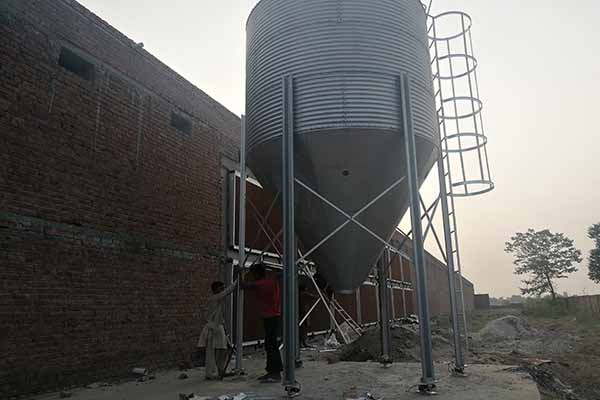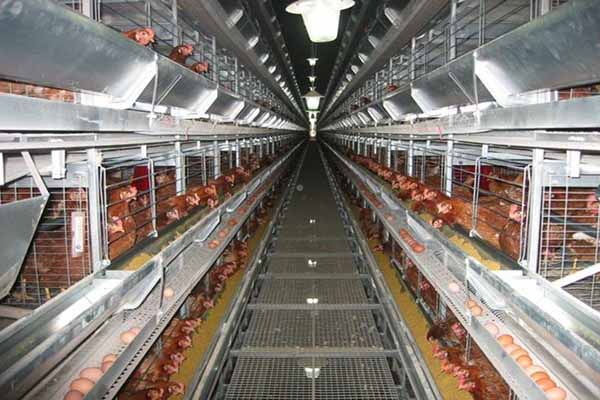How to Start a Hobby Chicken Farm: A Comprehensive Guide
Time : 2025-06-28
Embarking on the journey of starting a hobby chicken farm can be an exciting and rewarding experience. From providing fresh eggs to engaging in a sustainable lifestyle, raising chickens offers numerous benefits. Whether you’re looking to add a touch of farm life to your backyard or explore a new passion, this comprehensive guide will help you start your hobby chicken farm with confidence.
Understanding Your Motivation
Before diving into the practical aspects of starting a hobby chicken farm, it’s essential to understand your motivation. Are you looking for fresh eggs, a source of income, or simply a way to connect with nature? Defining your goals will help you make informed decisions throughout the process.
Benefits of Raising Chickens
- Access to fresh, organic eggs
- Environmental sustainability
- Physical and mental well-being
- Educational opportunities for children
Choosing the Right Location
Choosing the right location for your hobby chicken farm is crucial. Consider the following factors to ensure a successful setup:
Accessibility
Your farm should be easily accessible to you and your family. This ensures convenient access for daily maintenance, feeding, and gathering eggs.
Privacy
Consider the privacy needs of your family and neighbors. Chickens can be noisy, so it’s important to choose a location that respects the comfort of those around you.
Space
Ensure you have enough space to accommodate the number of chickens you plan to raise. Chickens require adequate space for exercise and foraging.

Selecting the Right Chickens
Choosing the right breed of chickens for your hobby farm is crucial for their health, productivity, and compatibility with your goals.
Considerations for Breed Selection
- Productivity: Some breeds are known for their egg-laying capabilities, while others are better for meat production.
- Temperament: Some breeds are more docile and suitable for handling, while others may be more aggressive.
- Size: Chickens come in various sizes, from bantams to standard-sized birds. Consider the space you have available.
- L layability: Certain breeds are known for their resistance to diseases and can thrive in various climates.
Setting Up the Coop
The coop is where your chickens will spend most of their time, so it’s essential to design and build it with their comfort and well-being in mind.
Design Considerations
- Size: Ensure the coop is spacious enough for the number of chickens you plan to raise.
- Roosting Bars: Provide comfortable roosting bars for your chickens to sleep on at night.
- Nesting Boxes: Provide nesting boxes for your chickens to lay eggs.
- Ventilation: Proper ventilation is crucial to prevent heat stress and ammonia buildup.
- Insulation: Insulate the coop to keep your chickens warm in the winter and cool in the summer.
Equipment and Supplies
Equipping your hobby chicken farm with the r ight tools and supplies will make the process of raising chickens more manageable and enjoyable.
ight tools and supplies will make the process of raising chickens more manageable and enjoyable.
Essential Equipment
- Feeders and Waterers: Provide clean, fresh food and water at all times.
- Brooder: If raising chicks, a brooder is essential to keep them warm and comfortable.
- Chicken Scraper: Keep the coop clean and free of manure.
- Tractor: A chicken tractor is a mobile coop that allows chickens to forage and exercise while keeping them safe from predators.
- Protective Gear: Wear protective gear when handling chickens, such as gloves and boots.
Supplies
- Chickens: Obtain healthy chickens from a reputable source.
- Feed: Choose high-quality chicken feed that meets the nutritional needs of your chickens.
- Medicine and Supplements: Keep a supply of chicken medicine and supplements to prevent and treat illnesses.
Feeding and Watering
Proper feeding and watering are essential for the health and productivity of your chickens.
Feeding Tips
- Provide a balanced diet of high-quality chicken feed, fresh greens, and treats.
- Avoid feeding your chickens processed foods or excessive amounts of treats, as this can lead to health problems.
- Provide feeders that are easy to clean and resistant to rust and corrosion.
Watering Tips
- Provide fresh, clean water at all times. Chickens require a constant supply of water.
- Waterers should be elevated to prevent chickens from soiling the water.
- Check waterers regularly to ensure they are functioning properly and that the water is not frozen in the winter.
Caring fo r Your Chickens
r Your Chickens
Proper care is essential for the health and happiness of your chickens.
General Care Tips
- Regularly inspect the coop for signs of disease or injury.
- Keep the coop clean and dry to prevent the buildup of ammonia and bacteria.
- Handle chickens gently and with care to avoid stress or injury.
- Monitor your chickens for signs of illness or stress, and seek veterinary care when necessary.
Maintaining Your Hobby Chicken Farm
Successful hobby chicken farming requires consistent maintenance and care.
Regular Tasks
- daily feed and water
- daily collection of eggs
- weekly cleaning of the coop
- monthly health checks
Seasonal Considerations
- Winter: Provide additional heat and insulation to keep chickens warm.
- Summer: Ensure adequate shade and ventilation to prevent heat stress.
- Spring and Fall: Monitor weather conditions and adjust the coop accordingly.
Conclusion
Starting a hobby chicken farm can be a fulfilling and rewarding endeavor. By following this comprehensive guide, you can create a thriving and sustainable environment for your chickens, enjoy fresh eggs, and connect with the beauty of nature.











